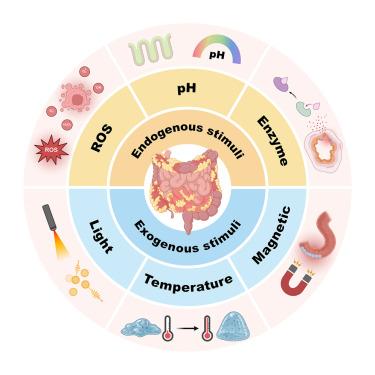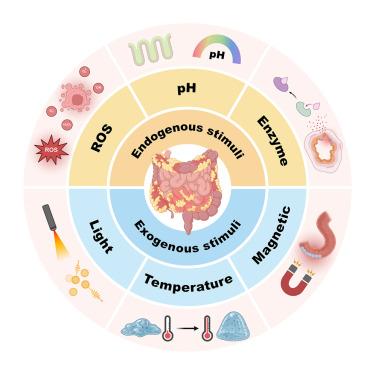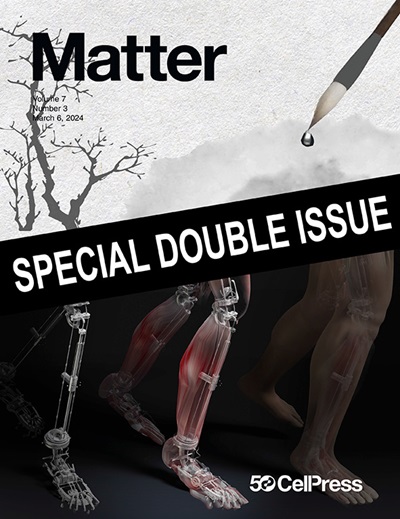Stimuli-responsive nanomaterials for targeted drug delivery in inflammatory bowel disease: Advances and emerging directions
IF 17.5
1区 材料科学
Q1 MATERIALS SCIENCE, MULTIDISCIPLINARY
引用次数: 0
Abstract
Inflammatory bowel disease (IBD) is a chronic and increasingly prevalent gastrointestinal disorder that remains difficult to treat due to the limited efficacy of conventional therapies, often compromised by premature drug release and systemic side effects. Stimuli-responsive nanomaterials have emerged as a promising solution, enabling targeted and controlled drug delivery at inflamed sites to enhance therapeutic outcomes and reduce toxicity. This review systematically examines the recent development and application of these smart nanomaterial drug-delivery systems for IBD therapy over the past years. By responding to the unique pathological features of the IBD microenvironment, these systems enable improved drug targeting and site-specific release. Despite significant progress, challenges such as scalable manufacturing, long-term safety, and clinical translation remain. Future research may focus on reducing batch-to-batch variation, conducting comprehensive safety assessments, and integrating personalized medicine approaches to fully harness the potential of stimuli-responsive nanomaterials in IBD treatment.


用于炎症性肠病靶向药物递送的刺激反应纳米材料:进展和新兴方向
炎症性肠病(IBD)是一种慢性且日益普遍的胃肠道疾病,由于常规疗法的疗效有限,通常由于药物过早释放和全身副作用而受到损害,因此仍然难以治疗。刺激反应纳米材料已经成为一种很有前途的解决方案,能够在炎症部位靶向和控制药物递送,从而提高治疗效果并降低毒性。这篇综述系统地检查了近年来这些智能纳米材料药物输送系统在IBD治疗中的最新发展和应用。通过响应IBD微环境的独特病理特征,这些系统能够改善药物靶向性和位点特异性释放。尽管取得了重大进展,但诸如可扩展制造、长期安全性和临床转化等挑战仍然存在。未来的研究可能会集中在减少批次之间的差异,进行全面的安全性评估,以及整合个性化的医疗方法,以充分利用刺激反应纳米材料在IBD治疗中的潜力。
本文章由计算机程序翻译,如有差异,请以英文原文为准。
求助全文
约1分钟内获得全文
求助全文
来源期刊

Matter
MATERIALS SCIENCE, MULTIDISCIPLINARY-
CiteScore
26.30
自引率
2.60%
发文量
367
期刊介绍:
Matter, a monthly journal affiliated with Cell, spans the broad field of materials science from nano to macro levels,covering fundamentals to applications. Embracing groundbreaking technologies,it includes full-length research articles,reviews, perspectives,previews, opinions, personnel stories, and general editorial content.
Matter aims to be the primary resource for researchers in academia and industry, inspiring the next generation of materials scientists.
 求助内容:
求助内容: 应助结果提醒方式:
应助结果提醒方式:


